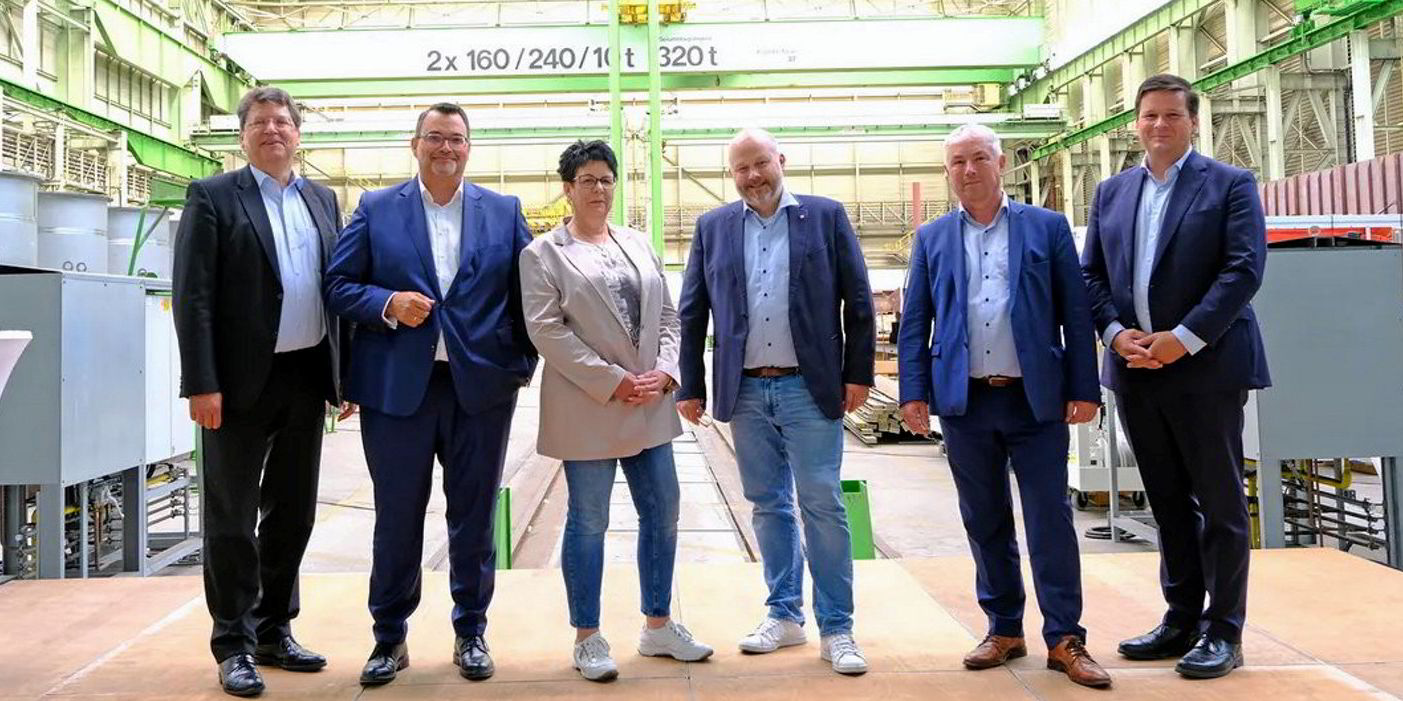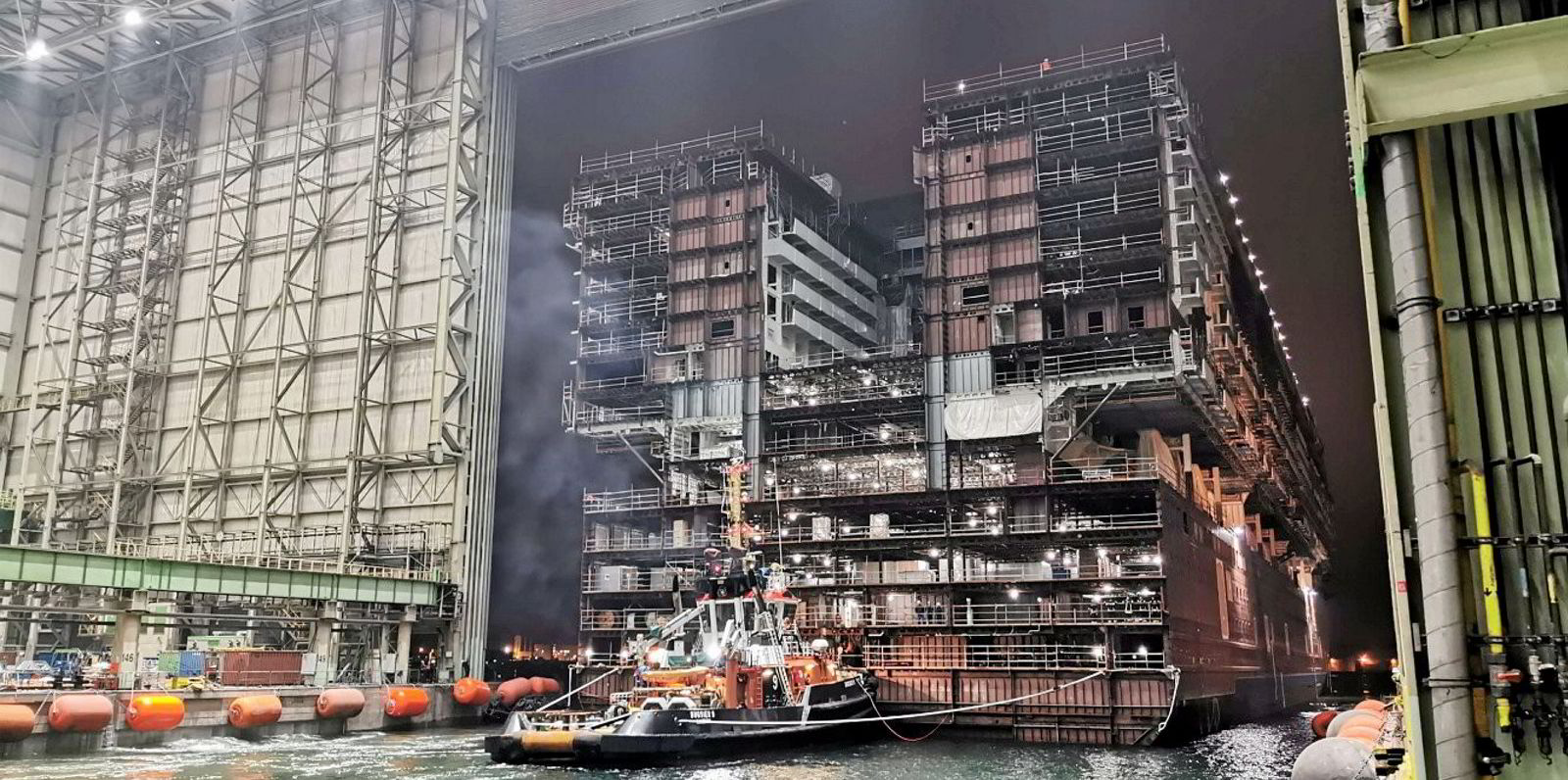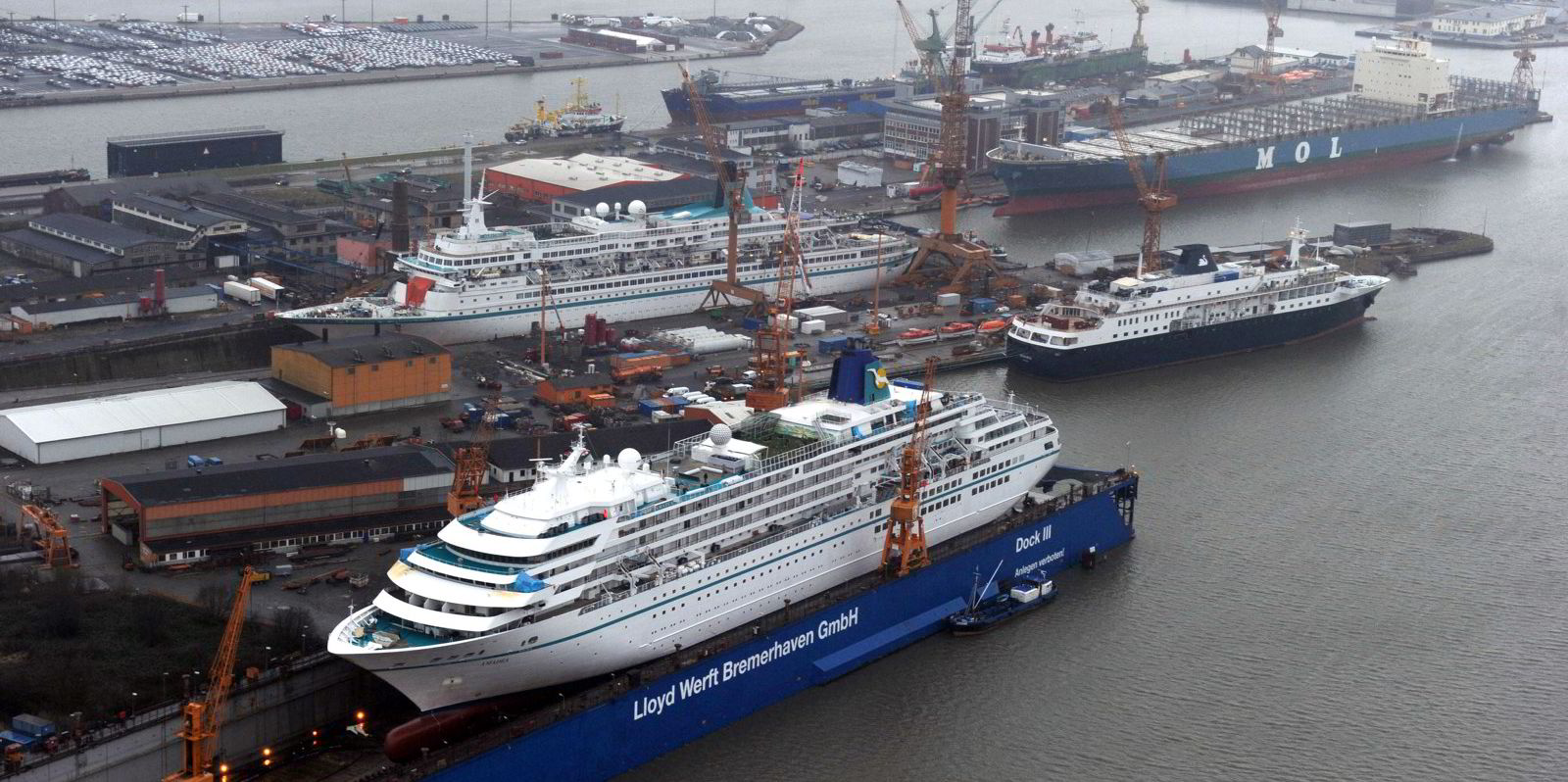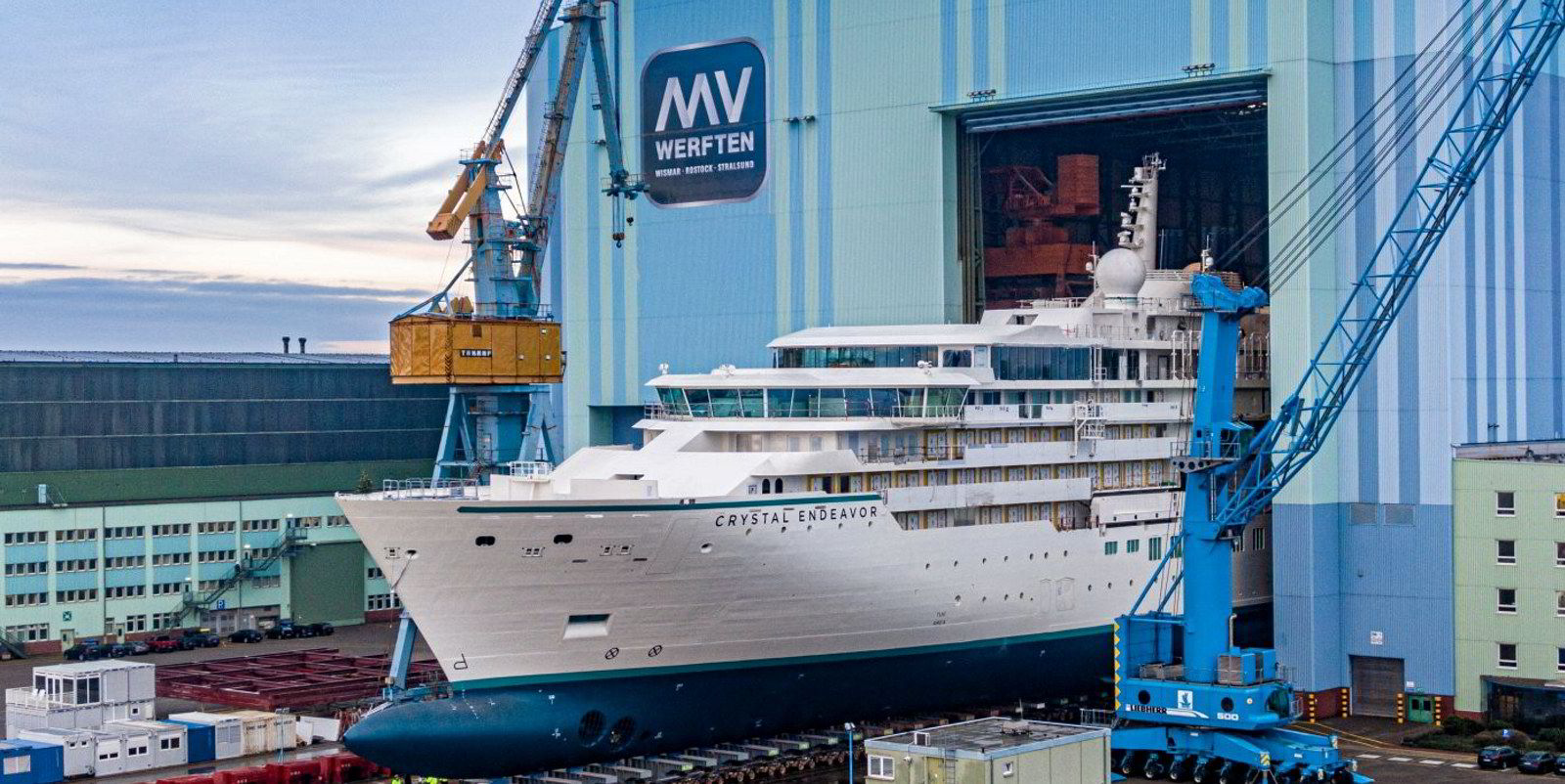Shipbuilding is to live on in the German port of Wismar following Thyssenkrupp Marine Systems (TKMS)’s purchase of Genting Hong Kong’s largest shipyard.
Part of the MV Werften group that collapsed along with Genting in January, the Wismar yard’s future activities will look a lot different from its most recent foray into cruise ship building, the new owners said.
“The main impetus for this is an order for more submarines from the German government,” TKMS announced on Friday.
The Kiel-based company, which is one of the world’s leading submarine builders, added that it would need to upgrade the yard to facilitate the complex submarine building process, and it could start production in 2024.
TKMS expects to employ 800 workers when production begins. This could increase to more than 1,500, depending on the number of naval orders it is able to secure.
New employees will be recruited primarily from a transfer company set up for the former employees of MV Werften.
TKMS chief executive Oliver Burkhard said: “We come to Wismar to give not only marine systems, but also the location and the people here, a real perspective.
“Shipbuilding is where we come from and shipbuilding is where we want to go. And we will do this together with the workforce — and with as many as we can.”
While MV Werften insolvency administrator Christoph Morgen did not disclose the purchase price, he said the deal “achieved the best result for the insolvency creditors and at the same time developed a strong outlook for the future”.
The sale of the Wismar facility leaves Morgen searching for buyers for other shipyards in the MV Werften portfolio.
German media reports claim that the Bundeswehr, the German armed forces, is working on a deal to acquire MV Werften’s shipyard in Warnemunde.
Also up for grabs is the Stralsund facility, which specialises in building small ships, including river and expedition cruise ships.
Morgen is also left with disposing of the two 201,000-gt Global-class cruise ship newbuildings that MV Werften was building for Genting’s Dream Cruises subsidiary.

The first of these, the Global Dream, was in the final stages of completion at Wismar when Genting collapsed.
Morgen has frequently said there has been strong interest in the vessel, but industry sources claim banks are holding buyers back because they are concerned about the cruise sector’s high debt load.
Swedish shipowner Stena was reportedly close to signing a purchase agreement in May, but backed out due to the uncertainty facing the cruise industry.
Morgen said at a press conference last Friday that the Global Dream can be towed anywhere in the world for final completion.
The ship may be put up for auction if a buyer cannot be found.
The project for the second Global-class newbuilding, which is still in the early stages of construction, has been abandoned.
Only work on the lower hull has been undertaken so far, although the engines and much of the equipment for the vessel are already on site.
Morgen said efforts are being made to resell the engines and equipment, while the partly constructed hull is to be dismantled as scrap.






